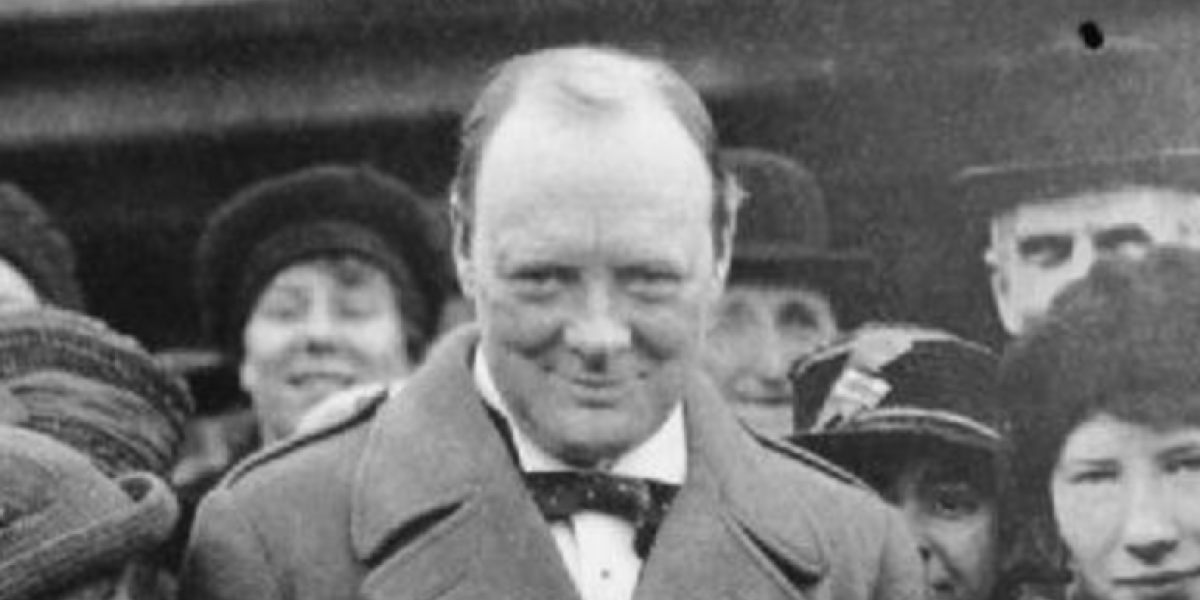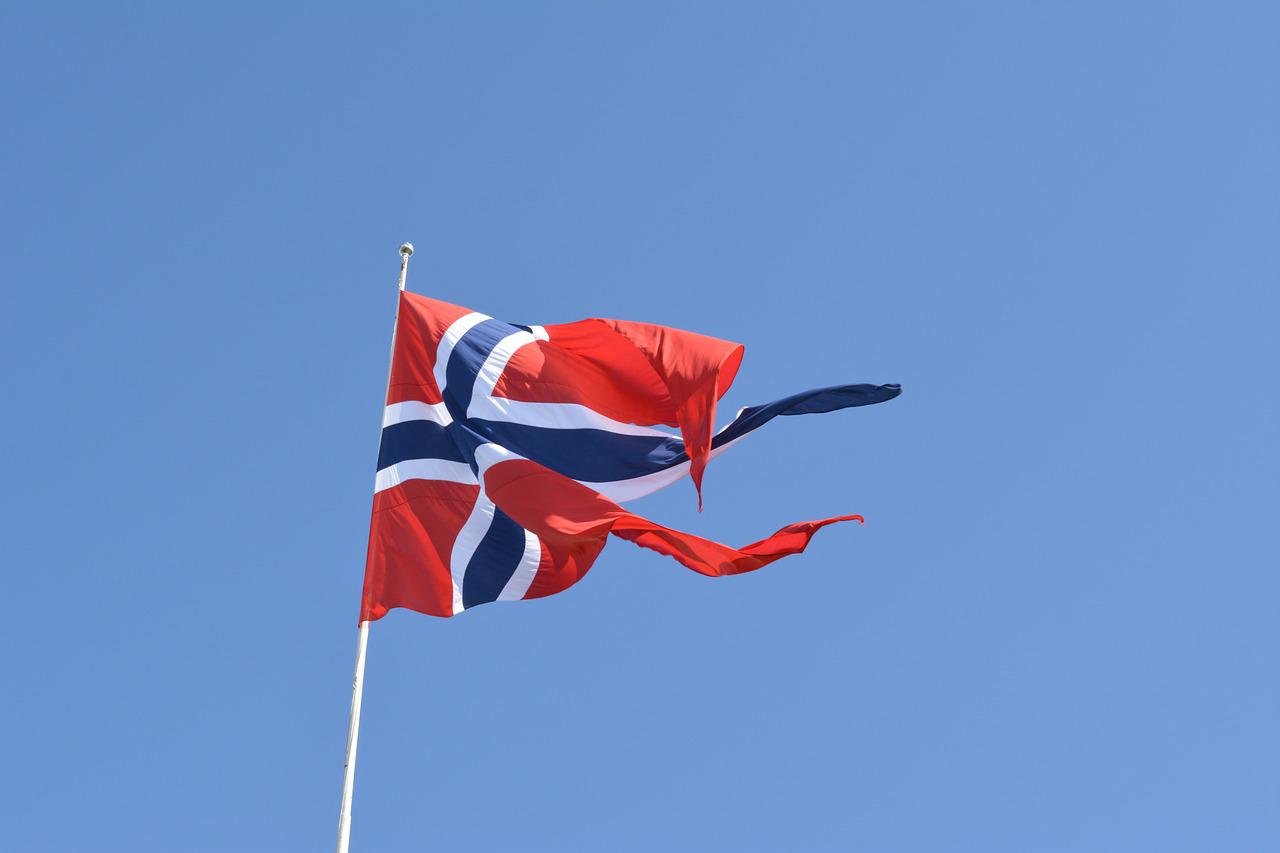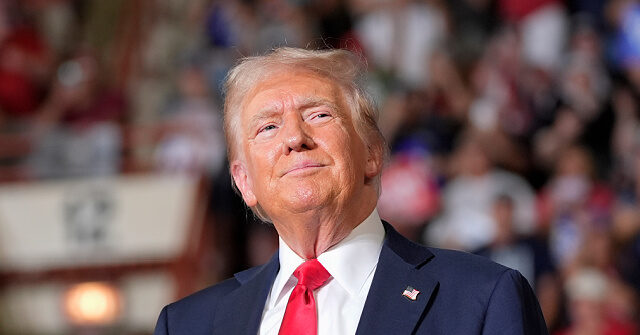“It says here in this history book that, luckily, the good guys have won every single time. What are the odds?” – ~Norm MacDonald
A segment of Tucker Carlson’s recent interview with Darryl Cooper is making the rounds on social media. Cooper questioned Winston Churchill’s hero status, which is a big no-no, especially among conservatives. The accepted view is that World War II can be reduced to the good guys versus the bad guys and that Churchill is the one who bravely convinced the good guys to go to war against the bad guys.
Cooper suggests that Churchill’s legacy is more complicated. According to Cooper, Churchill “kept this war going, and he had no way to go back and fight this war. All he had were bombers. He was literally, by 1940, sending firebombing fleets to go firebomb the Black Forest, just to burn down sections of the Black Forest—just rank terrorism.” He “carpet-bombed civilian neighborhoods, the purpose of which was to kill as many civilians as possible.” Churchill’s goal was to prolong and intensify the war so that the United States and the Soviet Union would enter the conflict.
This segment has received predictable levels of apoplectic backlash. In this article, I only want to address Churchill’s hero status. This is a great opportunity to revisit Ralph Raico’s Great Wars and Great Leaders: A Libertarian Rebuttal, and especially his chapter, “Rethinking Churchill.”
Raico began by acknowledging the mythology surrounding Churchill. It makes sense for Churchill to be elevated as “Man of the Century,” since the twentieth century is “the century of the State—of the rise and hypertrophic growth of the welfare-warfare state—and Churchill was from first to last a Man of the State.”
Also near the beginning of the chapter, Raico gives some hints of Churchill’s major crimes. Churchill resuscitated a war that had already effectively ended in 1940, and maintained offensive civilian bombing operations even though “there was little real threat of a German invasion.” But before getting into these details, Raico discussed Churchill’s career-long opportunism and obsession with war.
Churchill changed his party affiliation twice, flip-flopped on tariffs, and changed his tune regarding socialism as well: “He attacked socialism before and after World War I, while during the War he promoted war socialism, calling for nationalization of the railroads, and declaring in a speech: ‘Our whole nation must be organized, must be socialized if you like the word.’” Churchill was Hayekian when running against the Labour Party in 1945, but a Keynesian when, in 1943, he “accepted the Beveridge plans for the post-war welfare state and Keynesian management of the economy.” He hated communism but was fond of Stalin—Churchill “welcomed him as an ally, embraced him as a friend […] as late as the Potsdam conference, he repeatedly announced, of Stalin: ‘I like that man.’” Churchill even helped cover up Soviet war crimes in Poland.
Raico claimed that the one constant in Churchill’s life was his love of war. Raico, like Cooper, mentioned Churchill’s beloved toy soldiers. (Cooper said that Churchill continued to play with them even as an adult.) Regarding WWI, Churchill said, “I know this war is smashing and shattering the lives of thousands every moment—and yet—I cannot help it—I love every second I live.” Churchill said he “loved the bangs,” that “the story of the human race is war,” and that peace is “bland.” Raico concludes “All his life he was most excited—on the evidence, only really excited—by war. He loved war as few modern men ever have.”
If “war is the health of the state,” and Churchill loved war, then it makes sense that Churchill wanted a big, activist, central-planning welfare state. Before his appointment as Lord of the Admiralty, Prime Minister Asquith installed Churchill as president of the Board of Trade. Raico shows that in this position, “Churchill was one of the chief pioneers of the welfare state in Britain.” Churchill admired the Bismarkian social insurance programs in Germany, he believed in “collectivist social policy,” and he said that “the nation demands the application of drastic corrective and curative processes.” Nothing was out of bounds for the state—as Raico summarizes: “The state was to acquire canals and railroads, develop certain national industries, provide vastly augmented education, introduce the eight-hour work day, levy progressive taxes, and guarantee a national minimum living standard.” Why isn’t Churchill the hero of the left?
As First Lord of the Admiralty, “Churchill was the only member of the cabinet who backed war [WWI] from the start, with all of his accustomed energy.” Prime Minister Asquith wrote “Winston very bellicose and demanding immediate mobilization…. Winston, who has got all his war paint on, is longing for a sea fight in the early hours of the morning to result in the sinking of the [German warship] Goeben. The whole thing fills me with sadness.” Churchill skirted the Cabinet when he ordered the British navy to sail at night in waters with the intention to provoke war with Germany.
Once the war started (which filled Churchill with “glowing zest,” according to Lady Violet Asquith), Churchill oversaw the illegal hunger blockade of Germany. Raico points out that
About 750,000 German civilians succumbed to hunger and diseases caused by malnutrition. The effect on those who survived was perhaps just as frightful in its own way. A historian of the blockade concluded: “the victimized youth [of World War I] were to become the most radical adherents of National Socialism.” It was also complications arising from the British blockade that eventually provided the pretext for Wilson’s decision to go to war in 1917.
Churchill, therefore, was instrumental in starting WWI and paving the way to WWII. While the circumstances surrounding the sinking of the Lusitania are unclear, Raico concludes that “what is certain is that Churchill’s policies made the sinking very likely. Raico includes evidence brought to light by historian Patrick Beesly, who was “reluctantly driven to the conclusion that there was a conspiracy deliberately to put the Lusitania at risk in the hope that even an abortive attack on her would bring the United States into the war. Such a conspiracy could not have been put into effect without Winston Churchill’s express permission and approval.”
Between the wars, Churchill’s rhetoric defied “the modern mythology” surrounding Churchill. The accepted view is that Churchill was squarely focused on Germany as a threat, but in 1937 he admitted,
Three or four years ago I was myself a loud alarmist. . . . In spite of the risks which wait on prophecy, I declare my belief that a major war is not imminent, and I still believe that there is a good chance of no major war taking place in our lifetime.
Perhaps Churchill was trying to save his reputation. He had become known as a Chicken Little, always warning of existential threats around the world. Raico notes that people had stopped listening to Churchill—“he had tried to whip up hysteria too often before.” Raico also quotes “an ardent Churchill sympathizer” who reluctantly admitted that Churchill was no “angel of light”:
The time is long past when it was possible to see the protracted debate over British foreign policy in the 1930s as a struggle between Churchill, an angel of light, fighting against the velleities of uncomprehending and feeble men in high places. It is reasonably well-known today that Churchill was often ill-informed, that his claims about German strength were exaggerated and his prescriptions impractical, that his emphasis on air power was misplaced.
Raico finally arrives at “the great war crime” that was briefly discussed by Cooper and Carlson: “the terror-bombing of the cities of Germany that in the end cost the lives of around 600,000 civilians and left some 800,000 seriously injured.” Later, Churchill lied in his remarks to the House of Commons, claiming “that only military and industrial installations were targeted.” But the directive to the Bomber Command was “focused on the morale of the enemy civil population and in particular of the industrial workers.” And “The chief of the Air Staff added: ‘Ref the new bombing directive: I suppose it is clear that the aiming points are to be the built-up areas, not, for instance, the dockyards or aircraft factories.’”
The bombing of Dresden finally elicited public outcry, forcing Churchill to say to his staff, “It seems to me that the moment has come when the question of bombing German cities simply for the sake of increasing the terror, though under other pretexts, should be reviewed.” According to Raico,
The military chiefs saw through Churchill’s cowardly ploy: realizing that they were being set up, they refused to accept the memorandum. After the war, Churchill casually disclaimed any knowledge of the Dresden bombing, saying: “I thought the Americans did it.”
And still the bombing continued.
This brief summary of Raico’s “Rethinking Churchill” only scratches the surface. In this one chapter, Raico demolishes the Churchill myth, including 176 footnotes containing citations to evidence and corroborating accounts from historians, many of whom only reluctantly admit to Churchill’s flaws and crimes. Despite the accepted view of Churchill as hero, Raico concludes, “that, when all is said and done, Winston Churchill was a Man of Blood and a politico without principle, whose apotheosis serves to corrupt every standard of honesty and morality in politics and history.”
Image credit: (Public domain) Imperial War Museum, via wikimedia.
Originally Posted at https://mises.org/
Stay Updated with news.freeptomaineradio.com’s Daily Newsletter
Stay informed! Subscribe to our daily newsletter to receive updates on our latest blog posts directly in your inbox. Don’t let important information get buried by big tech.
Current subscribers:




